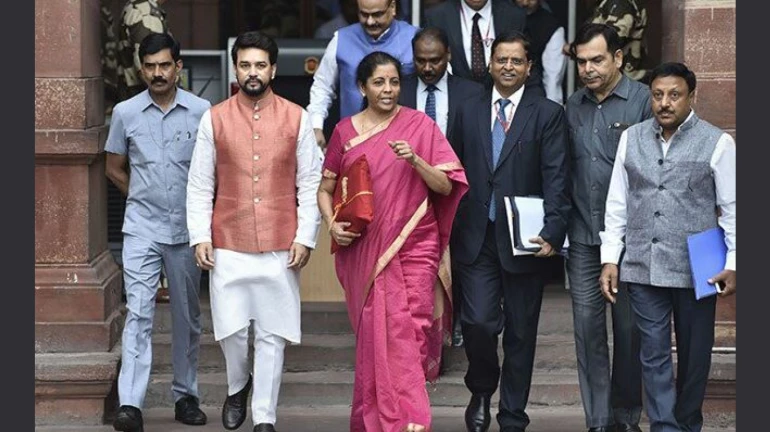
Nirmala Sitharaman’s first budget in 2019 was a fiasco. Most of the important policies were rolled back over the next few months as the Indian economy shrank, inflation raised its ugly head, and job losses increased. But there is still hope. A mix of three steps, one over the next two years, and two more in Budget 2020 can help to bring the economy back on tracks. The only thing required is political will – the ability to stick to the course. In such a scenario, she can easily and smoothly waltz her way to success.
The three moves include: immediately put more money in the pockets of the spenders, quickly nudge the banking sector to lend more, and quietly ease the sentiments within India Inc. The first implies tax changes to enable rural and urban consumers to retain more disposable incomes so that they can spend more. The precedent is there. A few months ago, the FM slashed corporate tax rate. If she can do it for the rich and wealthy in a desperate bid to help them to keep more money in their coffers, why not for us?
Individual spends have gone southwards. The poor and the marginalized, especially in the villages, spend lesser even on essential items like food and fuel. This trend has to be reversed to boost demand across several sectors, especially the ones that are worst hit like auto and real estate. Some of the specific measures in Budget 2020 can be to raise the exemption limit on individual incomes, and remove the contentious dividend distribution tax (DDT), which impacts the earnings from investments in shares.
In an attempt to suggest continuity, rationality, and practicality, Sitharaman can go a step further to provide a level-playing field in the arena of corporate tax. Although the rate was reduced for corporate firms, it wasn’t applicable for non-corporate entities like proprietorship, partnership, and limited partnership. Similarly, the new companies paid a lower tax than the older ones, which too creates distortions. With the reversal on DDT, the companies may be encouraged to pay higher dividends.
Over the past several months, the Reserve Bank of India has eased the interest rates. The Centre too has flushed in funds in the banks. Demonetization enabled the banks to hike their deposit bases. Still, the banks have shown an unwillingness and nervousness, even fear, to lend more to both individuals and companies. The reason is that they are still plagued with bad loans; a few, like SBI, even hid their actual exposures from the RBI. The pipeline to increase private investments, which can boost supply, was restrained.
This trend needs to change immediately. As there was an urgency to sort out the bad loans through the insolvency code, the same aggression has to be visible to hasten loans. More importantly, the precarious state of the non-banking finance companies (NBFCs), a major source of retail loans, has to be fixed. New ways to make them borrow from new sources, even a newly-formed government entity, have to be explored. A slew of such measures in Budget 2020 can go a long way to ease corporate liquidity.
If private investments go up, it will aid the higher spending powers of the consumers. A push to buy more goods and services can go hand-in-hand with a pull to better their supplies through an increase in production. This cycle can then mesh with Sitharaman’s intent to pump in Rs 102 lakh crore in infrastructure, largely by the Centre and states, over the next five years. A huge jump of public investment will have an exponential effect on growth. However, Budget 2020 hs to flesh out how this money will be spent.
Sadly, what is likely to be a slower and more tortuous process is to change the extremely negative sentiments within India Inc. An example of this was visible from a recent statement made by a corporate chieftain. He said that while supervision, not suspicion, should be the aim of a government, all rules of this regime stemmed from suspicion. It believed that all the businesses were corrupt. It was such a stinging remark that the FM had to intervene to clarify that she was taking all measures to improve this trust deficit.
Over the past year, industrialists voiced their concerns over the stick being wielded by the tax and other authorities on India Inc. There was feeling of fear and despair within the business community. In the past, the government made statements to assure the industrialists. What is required is not words, but actions on the ground. While the authorities need to chase and go after the corrupt, this has to be based on actual facts and evidence, rather than a mindset that everyone has done something wrong.





